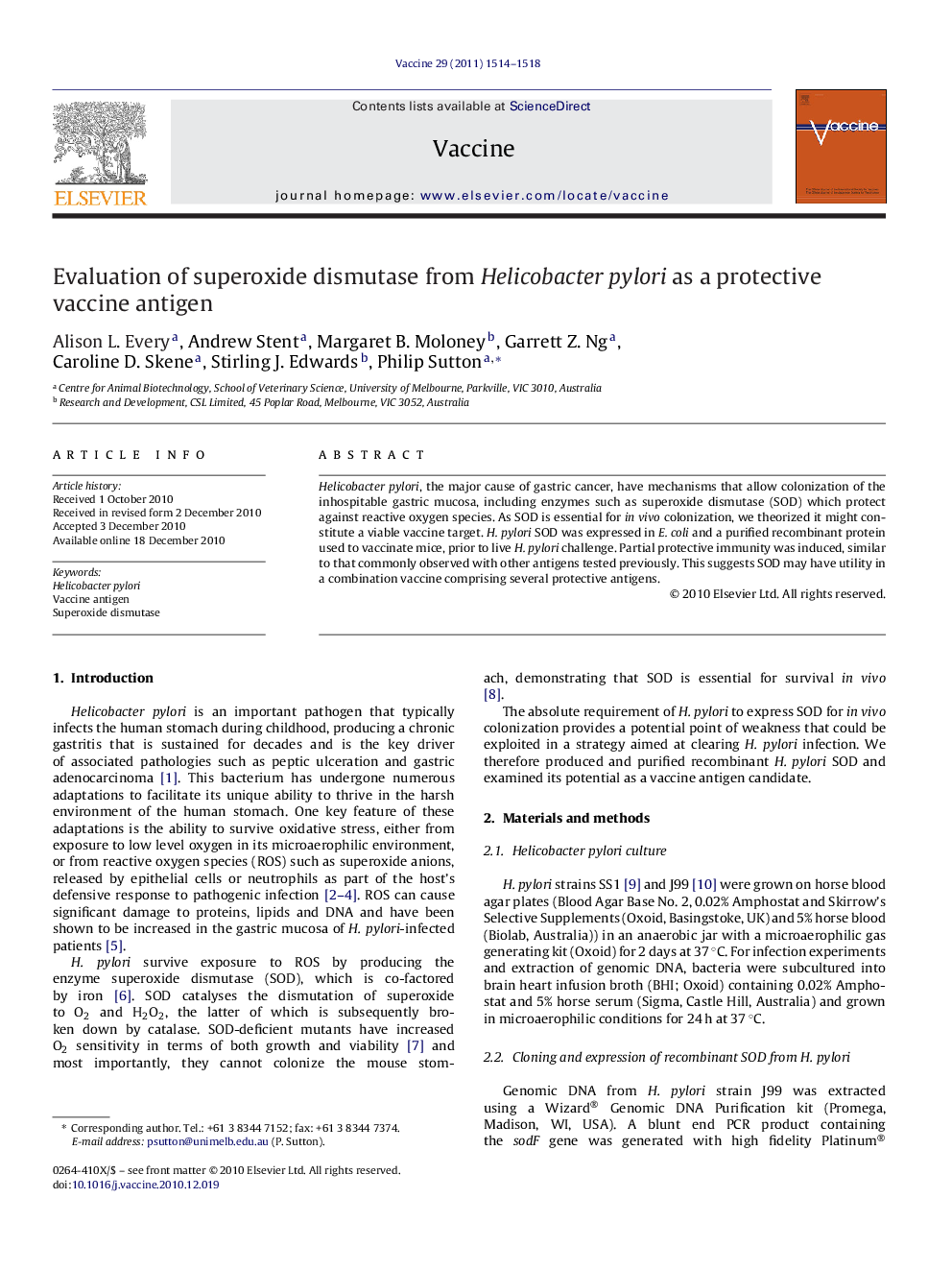| Article ID | Journal | Published Year | Pages | File Type |
|---|---|---|---|---|
| 10970197 | Vaccine | 2011 | 5 Pages |
Abstract
Helicobacter pylori, the major cause of gastric cancer, have mechanisms that allow colonization of the inhospitable gastric mucosa, including enzymes such as superoxide dismutase (SOD) which protect against reactive oxygen species. As SOD is essential for in vivo colonization, we theorized it might constitute a viable vaccine target. H. pylori SOD was expressed in E. coli and a purified recombinant protein used to vaccinate mice, prior to live H. pylori challenge. Partial protective immunity was induced, similar to that commonly observed with other antigens tested previously. This suggests SOD may have utility in a combination vaccine comprising several protective antigens.
Related Topics
Life Sciences
Immunology and Microbiology
Immunology
Authors
Alison L. Every, Andrew Stent, Margaret B. Moloney, Garrett Z. Ng, Caroline D. Skene, Stirling J. Edwards, Philip Sutton,
